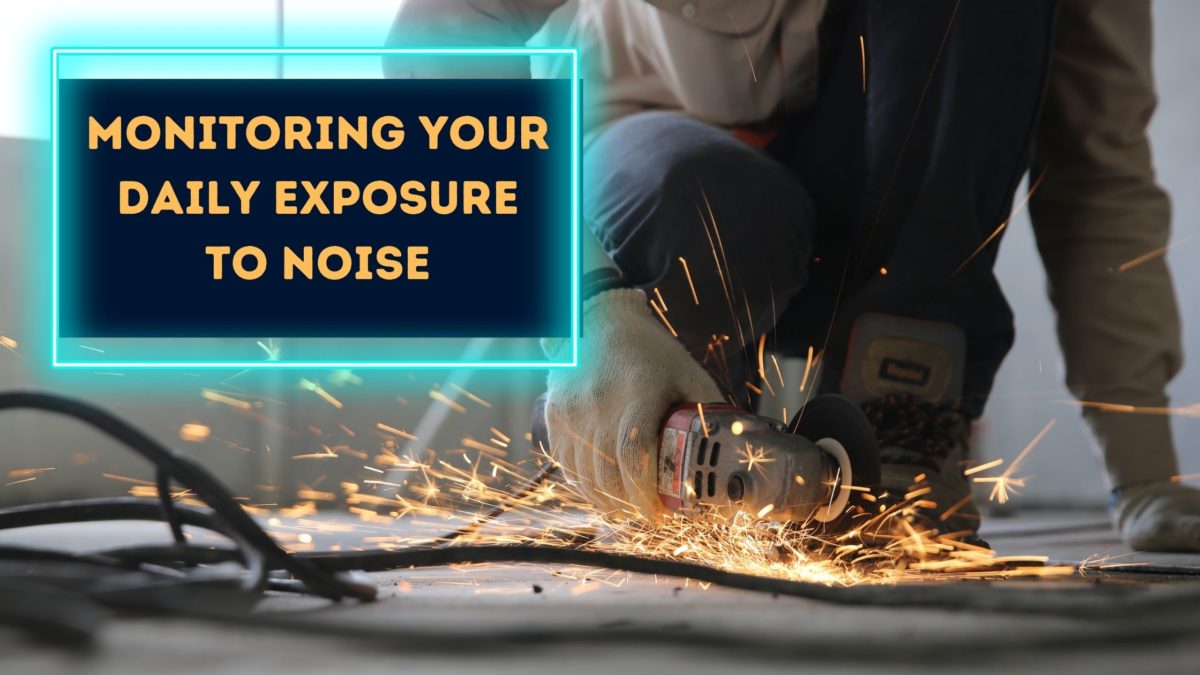Exposure to loud noise is one of the most common causes of hearing loss. You may be thinking it takes high levels of volume to damage hearing but we are exposed to everyday noises that can be hazardous for hearing health. Over 48 million people live with some degree of hearing loss, making it the third most pervasive chronic medical condition today. Monitoring your daily exposure to noise is a great way to reduce your risk of developing hearing loss, protecting your hearing health and wellness.
Noise-Induced Hearing Loss
One-time or consistent exposure to loud noise can cause irreparable damage to the auditory system. Specifically, loud noise can damage the hair cells in the inner ear. There are thousands of these hair cells in each ear and they help convert incoming sound waves into electrical signals. These signals then get sent to the brain where they are further processed and assigned meaning which is what allows us to understand what we hear. Loud noise can cause sensory cells to lose sensitivity, dying over time. This prevents them from or reduces their capacity to perform their essential function. The brain then has to work harder to process and make sense of these sound signals which produces a range of symptoms that makes it challenging to hear.
Unlike other types of cells that we have, hair cells in the inner ear do not regenerate. There are also no medical interventions that can correct any damage or replenish these hair cells. This results in permanent damage that produces chronic hearing loss which can be effectively managed but not cured. Fortunately, noise-induced hearing loss is preventable! Practicing safety measures can prevent the development of hearing loss.
Monitoring Daily Exposure
A beneficial way of protecting your hearing health is by monitoring your daily noise exposure. Sound is measured in decibels and noise that is 85dB and higher can be damaging to hearing. This is the equivalent of busy city traffic, noise in a busier restaurant, and a hairdryer. Experts suggest that people can be exposed to 85dB of sound for 8 hours a day without risk to their hearing. Surpassing this threshold for safe exposure can be harmful to your hearing. The Occupational Health and Safety Administration (OHSA) suggests that exposure time should be reduced by half for every 3-decibel increase of noise after 85dB. Their guidelines for safe listening includes the following:
- 85dB: 8 hours
- 88dB: 4 hours
- 91dB: 2 hours
- 94dB: 30min
There are ways you can monitor the noise you are exposed to so that you can adjust your exposure time accordingly. This includes downloading an app that measures the decibels in your environment which then lets you know how long you can safely absorb that noise.
Tips to Protect Your Hearing Health
In addition to measuring noise levels in your environment, there are several ways you can protect your hearing. Tips you can integrate to reduce your risk of developing noise-induced hearing loss include the following:
- Wear hearing protection. Protective gear provides a barrier for the ears, reducing the amount of loud noise you absorb. There are various types of hearing protection including headphones, earbuds, and earmuffs which are all portable items that you can reach for when moving through louder environments.
- Reduce exposure. In addition to monitoring noise levels and adjusting exposure time, there are more ways you can reduce your exposure to loud noise. This includes avoiding places during peak hours (restaurants for example), maintaining low volume levels on electronic devices, taking alternate routes to avoid traffic, and investing in noise cancellation headphones that reduce background noise.
- Have a hearing test. Getting your hearing evaluated every year is a great way to track your hearing health. Hearing tests involve a noninvasive and painless process that measures hearing capacity in both ears. This establishes a baseline for your hearing health which then makes it easier to identify any changes that you may experience. Catching hearing loss early and seeking treatment prevents the impairment from worsening, helping your transition into better hearing health.
Prioritize your hearing health and wellness with our team today by contacting us and scheduling an appointment for a hearing consultation!

